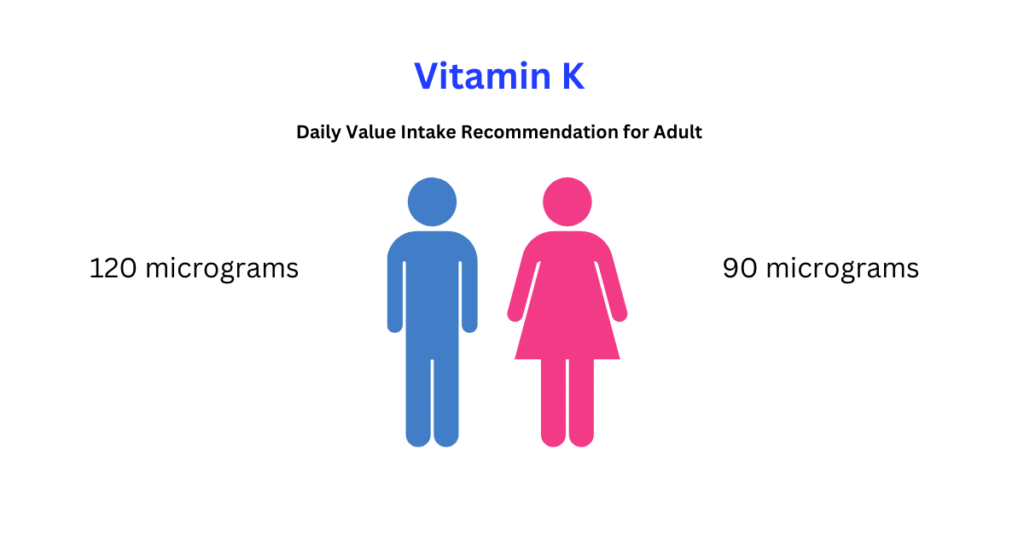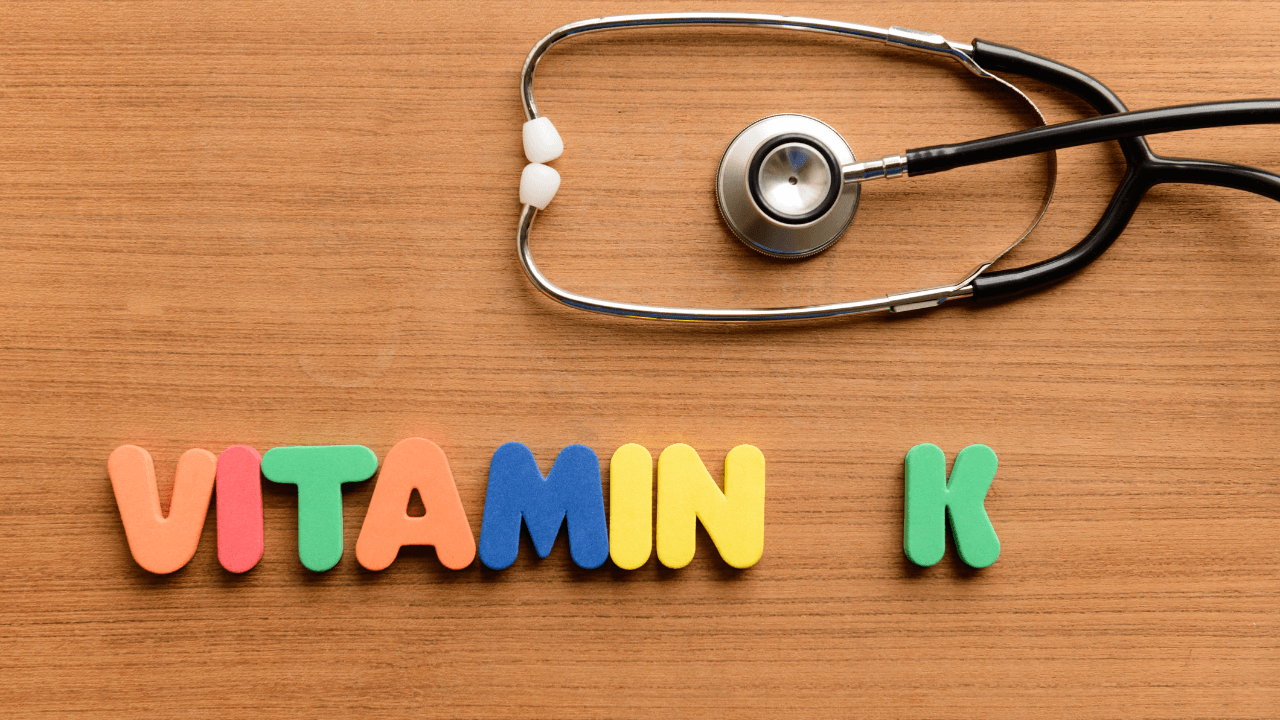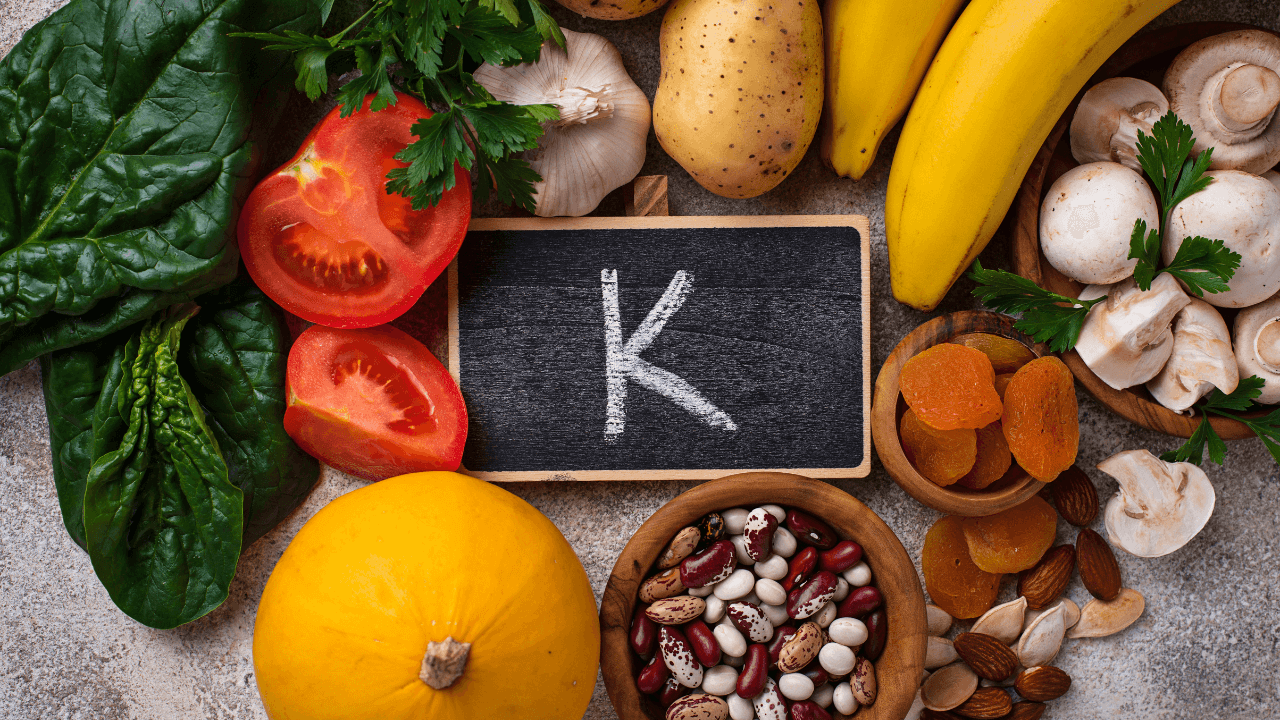Embark on a journey to uncover the crucial role of Vitamin K in maintaining your health. Known primarily for its essential functions in blood clotting and bone health, vitamin K or phylloquinone is a key nutrient in our diet. This comprehensive guide will delve into the benefits of this vitamin, explore natural vitamin K sources, and discuss the significance of vitamin K supplementation for those who need it. Learn how to include phylloquinone in your diet to ensure optimal health.
A Cornerstone for Blood Clotting and Bone Health
Phylloquinone plays a pivotal role in the body, especially in blood clotting and maintaining strong bones. Ensuring you meet the recommended daily intake is vital for these critical bodily functions.

Top Dietary Sources of Phylloquinone
Rich sources of Vitamin K are mostly found in green leafy vegetables. Here’s a list of the top foods containing vitamin k:
- Kale (1/2 cup, cooked): Approximately 443 micrograms
- Spinach (1/2 cup, cooked): Approximately 444 micrograms
- Swiss chard (1/2 cup, cooked): Approximately 287 micrograms
- Broccoli (1/2 cup, cooked): Approximately 110 micrograms
- Brussels sprouts (1/2 cup, cooked): Approximately 110 micrograms
- Green beans (1/2 cup, cooked): Approximately 9 micrograms
- Cabbage (1/2 cup, cooked): Approximately 82 micrograms
- Prunes (1/2 cup, cooked): Approximately 52 micrograms
- Kiwi (1 medium): Approximately 72 micrograms
- Blueberries (1/2 cup): Approximately 14 micrograms
Benefits Of Vitamins K:
Vitamin K or Phylloquinone, a crucial nutrient for overall health, offers several significant benefits:
1) Blood Clotting:
Phylloquinone plays an essential role in synthesizing proteins necessary for blood clotting. If the body doesn’t have enough vitamin K, it significantly impairs the blood’s clotting ability, potentially causing excessive bleeding from wounds or injuries.
2) Bone Health:
Vitamin K plays a critical role in bone metabolism. It is needed to modify bone proteins, which helps maintain bone strength and density. It’s especially important in preventing osteoporosis and fractures in older people.
3) Heart Health:
By helping to regulate calcium deposition, phylloquinone can prevent the calcification of arteries and other soft tissues, reducing the risk of heart diseases and strokes. [1]
4) Supports Immune Function:
Vitamin K has been shown to have an important role in the immune response, though the exact mechanisms are still being studied.
5) Aids in Calcium Regulation:
It helps regulate calcium levels in the blood, vital for various bodily functions, including bone formation and heart health.
6) Wound Healing:
Due to its role in blood clotting, vitamin K is essential for the initial stages of wound healing.
7) Potentially Reduces Cancer Risk:
Some studies have suggested that phylloquinone may reduce the risk of certain types of cancer, though more research is needed in this area.
8) Cognitive Health:
Emerging research indicates a role for vitamin K in brain health, potentially impacting cognitive functions and brain aging processes.
9) Anti-Inflammatory Properties:
Phylloquinone has been observed to have anti-inflammatory effects, which can be beneficial in reducing the risk of several chronic diseases.
10) Supports Healthy Pregnancy:
Ensuring sufficient intake of this nutrient is crucial for expectant mothers to prevent pregnancy-related complications and aid in the fetus’s development.
You might be interested in reading Vitamin B9 (Folate): Essential for Health and Vitality.

Understanding Deficiency and the Need for Supplementation
While deficiency is rare, certain conditions can lead to low levels. People with fat malabsorption disorders or those who have been on long-term antibiotics may experience deficiencies. Symptoms can include easy bruising and excessive bleeding.
In such cases, vitamin k2 supplement might be necessary. This is especially important for individuals on blood-thinning medications, as it plays a critical role in blood clotting.
Navigating Interactions and Maximizing Phylloquinone Absorption
Medications, particularly blood thinners like warfarin, can interact with phylloquinone. Because of this, healthcare professionals carefully balance phylloquinone intake in these patients to ensure optimal medication effectiveness. It’s beneficial to consume these foods with fats, as phylloquinone is fat-soluble, to enhance the absorption.
Conclusion
Vitamin K is an indispensable nutrient in blood clotting and bone health. You can effectively manage your health and prevent deficiencies by including a variety of vitamin K-rich foods in your diet and understanding the nuances of vitamin K supplementation and absorption. Remember, it’s always best to consult with a healthcare provider for personalized advice when it comes to vitamins and medications.







